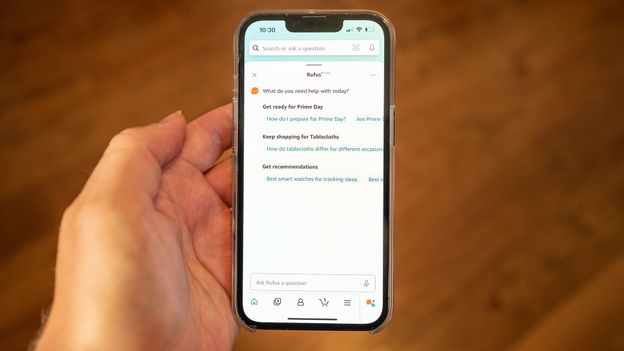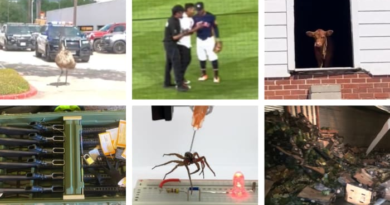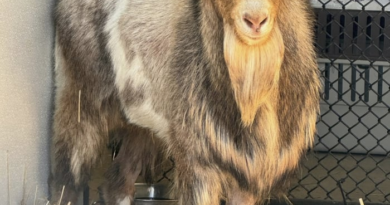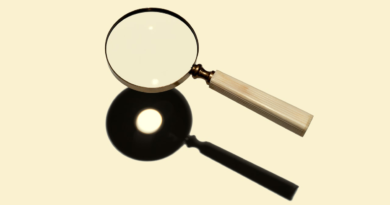The weird way AI assistants get their names – BBC.com
Amazon has called its latest AI assistant Rufus. But what is the story behind this unusual moniker and how does it compare to the way other AIs have been named?
In Ancient Rome it was a sobriquet for those blessed with red hair. The ruddy complexion of Wiliam II of England – the third son of William the Conqueror – also earned him the same nickname. Today in the UK, the forename "Rufus" has acquired a somewhat blue-blooded air. But it is perhaps more common to hear it being hollered by dog-walkers out for a stroll with their furry friends due to its delightful onomatopoeic similarity to barking.
So, it may raise some eyebrows to learn that online retail giant Amazon has chosen to give its latest AI assistant the same name. In November 2024, it will be 10 years since Amazon announced its first voice-activated smart assistant Alexa. The name was apparently chosen in homage to the ancient Library of Alexandria in Egypt.
But the origins of the company's latest assistant's moniker are arguably far cuddlier – Rufus is named after Amazon's first "office dog".
Rufus now joins a growing list of AI assistants offered by big tech companies with obscure names. Google's Gemini originally had the project title "Titan", but was swapped for its current name by the DeepMind team who were developing it. Gemini is Latin for twins, pointing at the collaboration between the DeepMind and Google Research teams on the project, but also to the dual personality attributed to the Gemini zodiac sign.
The name for the recently launched Apple Intelligence – which is bringing AI features to the Cupertino-based tech giant's devices – doesn't take a genius to figure out. But its Siri digital assistant was named by Dag Kittlaus, the co-founder of the company that developed the voice-activated software, who named it after a Norwegian colleague before it was acquired by Apple. In Norwegian means "beautiful woman who leads you to victory", but the name was also easy to pronounce, according to Kittlaus.
Tales of Rufus – a charming Welsh corgi – date back to Amazon's earliest days.
It was 1996, in the midst of the dot com boom, not long after Susan and Eric Benson came to work at the two-year-old startup together. At the time, there were less than 20 employees at Amazon and Eric was the fifth engineer they hired. Susan was a journalist who would become the editorial voice of the pioneering online store. Working long hours as the company geared up to go public, the couple began bringing their two-year-old dog with them to the office.
It didn't take long for the canine to integrate into the working day: chasing down tennis balls in hallways, begging for treats from other workers, sleeping his way through meetings under tables, and using his paw (with a little human help) to launch features on the website. These include the algorithm that recommends books based on what others have read.
Rufus would go on to become the first face of Amazon's error page to alert users when things went wrong.
Long after the Bensons retired in 2001, Rufus continued to make appearances on campus with his dog sitter who still worked there. The dog lived to the ripe old age of 15 and helped to start the dog-friendly culture at Amazon that allows employees to bring their pets to work.
Today, Amazon has more than 10,000 dogs registered as "working" at the tech giant. Popular amenities on campuses around the world include decked out dog parks, unlimited treats, and meetups for furry friends.
Amazon is far from the only tech company to have embraced a dog friendly workplace. Google welcomes dogs at its offices and its canine-owning employees are known as Dooglers. The company's Mountain View campus even has a dog park called the Doogleplex.
Amazon also has an office building in downtown Seattle named after its first dog. The Rufus Building is where is where the company's AI-powered shopping assistant was developed and the root of its name, according to Rajiv Mehta, Amazon's vice president of search and conversational shopping.
"We did extensive research on the name Rufus from many marketplaces that Amazon operates in and overall, we found that it was a brand and a name that resonated with customers around the world," says Mehta.
Although Rufus passed away in 2009, his legacy lives on. Amazon has now launched its AI assistant in the US, India and the UK, to provide information to customers as they make purchasing decisions. It is intended to answer questions about products.
Although customers can talk to Rufus, the AI assistant does not yet have a voice and can only respond by text and images. Mehta declined to speculate whether it would be integrated with Alexa. "I can't speak to plans on Alexa," he says. "The teams are completely separate at this point."
To date, Rufus has answered more than 100 million queries, says Mehta.
We asked Rufus for some more information about dogs. Its response was as heart-warming as the original Rufus:
"Dogs are one of the most beloved pets in the world. They are loyal, friendly and make great companions. Despite their differences, all dogs share a few key traits – they are affectionate, protective of their owners, and eager to please. Dogs require proper care, including regular exercise, grooming, and veterinary checkups. In return, they provide unconditional love and can even improve their owner's physical and mental health. Whether as a family pet or a working animal, dogs have been an integral part of human society for thousands of years."
While we can't know how pleased the original Rufus would have been with this summary, he may well have mourned the omission of treats.
—
For more technology news and insights, sign up to our Tech Decoded newsletter, while The Essential List delivers a handpicked selection of features and insights to your inbox twice a week.
For more science, technology and health stories from the BBC, follow us on Facebook and X.
BBC reporter Marc Cieslak explores a high-security hub monitoring digital threats ahead of the US election.
Two voice-over artists were listening to a podcast when they heard their own stolen AI-generated voices.
The iconic team has developed technology which spread to concerts, nightclubs, and other sports teams.
AI v The Mind: We explore the world of food and ask if human expertise is the only way to deliver great flavour.
A new generation of smart goggles provide real time visual feedback to enhance athletic performance.
A look through footage from the Paris 1924 Olympics gives viewers a chance to reflect on how much has changed.
A project using AI and sports science identifies potential future athletes from the crowds of Olympic fans.
In a clash of wit and technology, we bring together two unlikely adversaries: a comedian and an AI chatbot.
A new network along the Seine in Paris will broadcast Olympic festivities from the river.
A peak inside both the real and virtual new Aquatic Centre built for the Paris Games.
Filmmaker Gary Hustwit has created a documentary which can rewrite itself before every screening.
Could the United States' largest saltwater lake hold the key to its energy future?
Space agencies around the world need lunar soil.
Dandora sits on the outskirts of Nairobi, Kenya, and 800 tonnes of garbage is dumped on the site every day.
In a new series, we will test the limits of the latest AI technology by pitting it against human experts.
Some politicians have found themselves victims of deepfakes. Can the public trust politicians in the age of AI?
We spoke to two influencers who use the short form video platform to raise awareness and inform.
Apple is turning science fiction into reality but was VR meant to be used like this?
Watch the full documentary Mark Zuckerberg: The Billionaires Who Made Our World on BBC Select.
Veterinarian professionals are committing suicide at a higher rate than the general population.
AI services that can describe pictures and scenes are helping the visually impaired.
Linking eight Balkan nations, the new Trans Dinarica cycling trail twists through some of the continent's most stunning – and least-visited – landscapes.
Arthur Ashe revealed his diagnosis in 1992 after years of secrecy, and became a pioneering campaigner for Aids awareness.
Artificial intelligence-powered speech synthesisers can now hold eerily realistic spoken conversations and clone the voices of others. Can we tell them apart from the human voice?
One of the Philippines' most acclaimed chefs shares his delicious take on Christmas dining – which is centred around sharing food and smoky flavours.
Copyright 2024 BBC. All rights reserved. The BBC is not responsible for the content of external sites. Read about our approach to external linking.




